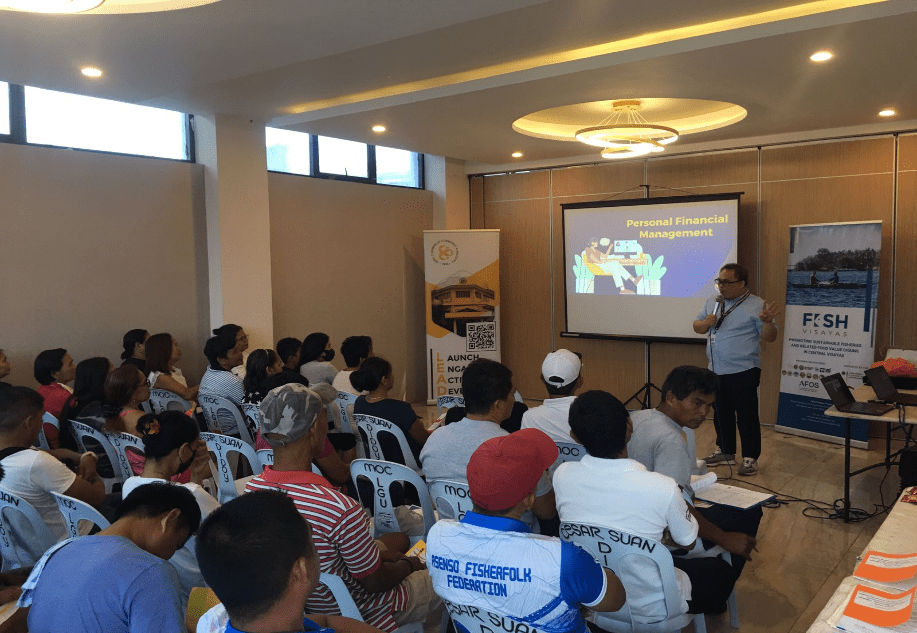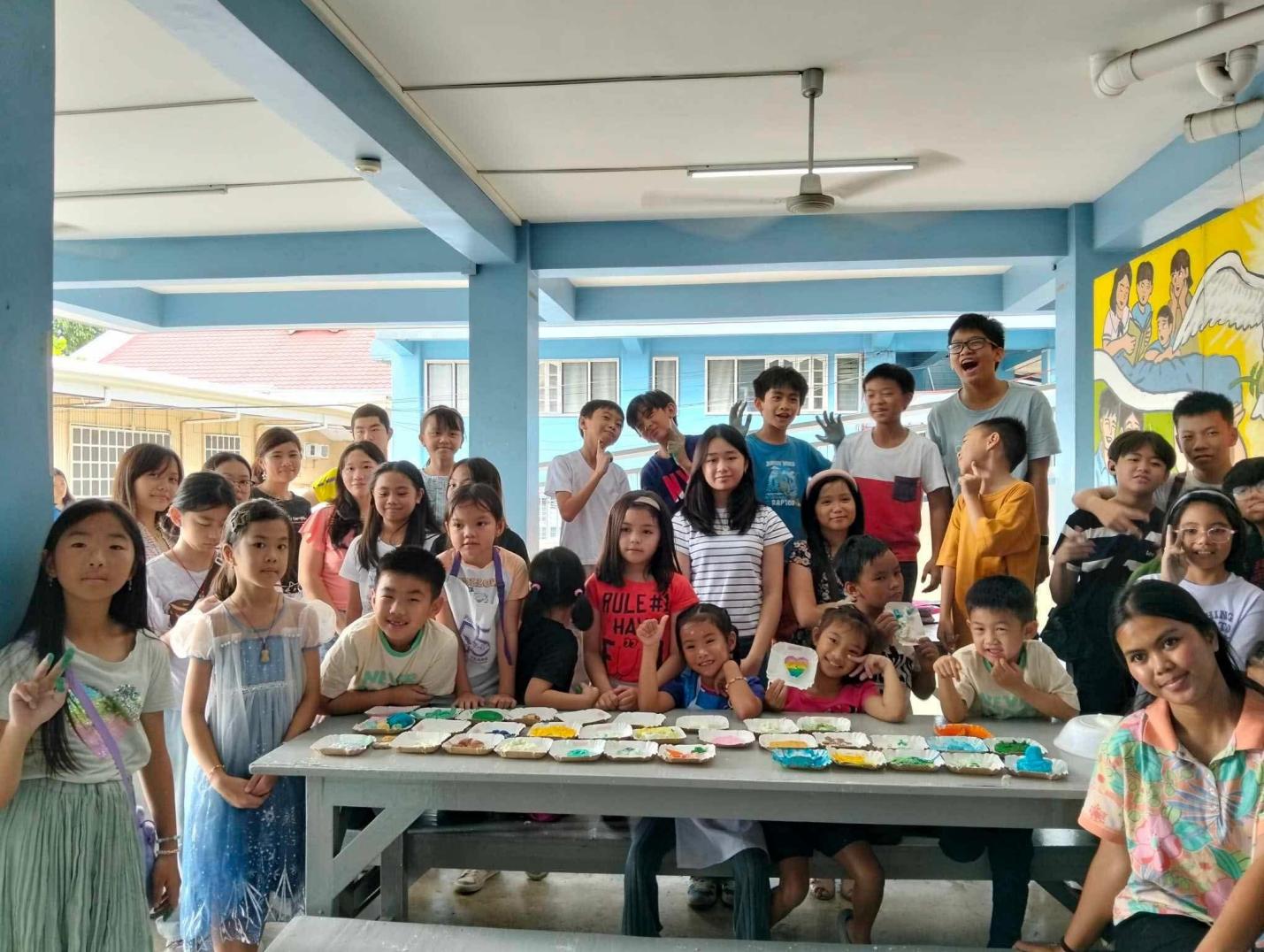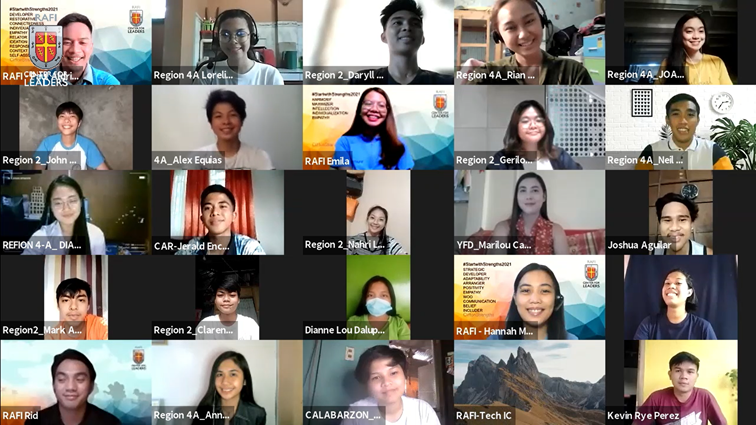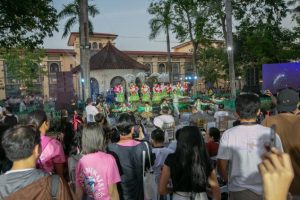This year, the Ramon Aboitiz Foundation, Inc. Center for Leaders (RAFI-CFL) is providing learning sessions for the Department of Education Central Office – Youth Formation Division under the Bureau of Learner Support Services in support of their aim for the development of the Filipino youth.
The Youth Formation Division (YFD) is a newly-formed division under the Bureau of Learner Support Services (BLSS) in the Department of Education Central Office. It was founded with the hopes to develop the Filipino youth for societal development — a Filipino Youth that understands that society cannot be successful unless all of its parts work together and address the nonworking parts in the society. One of the ways to achieve that goal is by providing learner-centered development courses for the proactive Filipino youth.
It is anchored in supporting the K to 12 curriculum by honing and complementing the following learning areas and skills to be developed namely: societal engagement, technical skills, social skills, creativity and innovation skills, affective skills, and self mastery skills.
The goal of YFD is to equip the Filipino youth who are responsible, hardworking, enterprising, persevering, value-driven and culturally-rooted with world class skills imbued with values such as being maka-Diyos, maka-Tao, maka-Bayan at maka-Kalikasan.
By formulating policies, standards, and guidelines on youth programs in collaboration with its stakeholders, YFD hopes to promote character information, civic engagement, and social consciousness towards an empowered Filipino youth.
YFD’s vision of developing the Filipino youth for societal development through learner-centered courses was supposed to be a straightforward venture. However, with the fast-changing practices of managing and leading organizations, leaders now face various challenges as they navigate themselves, their team, and their organization through the “new normal.”
This is where RAFI-CFL stepped in. In April 2021, RAFI-CFL teamed up with the Department of Education Central Office – Youth Formation Division under the Bureau of Learner Support Services for some insightful rounds of learning sessions. The month-long learning sessions were attended by Project Development Officers and Supreme Student Government Officers across the country.
“This pandemic changed the demand of education and altered the landscape in which we viewed and approached youth development and formation. As the premier youth formators of the country, in our hands, is the future of this nation. With the onset of the pandemic, are we still equipped to match the demands of these trying times? Are we skilled to match the challenges in mentoring and guiding in a heavily technologically reliant mode of interaction? Do we have the right mindset to understand the needs of our student leaders?” These were the questions of Mr. Adolf Aguilar, Division Chief, Youth Formation Division of the Department of Education, in his opening remarks during the first Leadership Conversation learning session.
Mr. Aguilar continued by reminding them of the goal of the learning sessions. He goes on to note how important it was to evaluate one’s self, “And as we continue to battle the many contemporary issues of the country, let us ask ourselves: Are we ready to build the future generation using our Puso, Galing, at Talino? Let us be the beacon of wisdom to our student leaders. Let us continue to cultivate ourselves so we can have more to offer and share.”
Jacob B. de Asis, Supreme Student Government President from Matatalaib High School in Tarlac participated in the virtual learning session. “I will use all the learning to spread the message that we, as a youth, must be responsible and accountable in using social media. I would use it to be a better person of change in the social media world,” he stated.
The Conversations For Leaders In-Service Course helped the members of the Youth Formation Division understand the leadership challenges of the new normal. It also served as a refresher of the necessary leadership skills that they should practice and develop even further, especially with the new normal.
The RAFI-CFL, has partnered with Facebook and AHA Behavioral Learning Design to implement Digital Tayo: An Introduction to Digital Citizenship to the young leaders of the Youth Formation Division. It is designed to help people with vital skills to be adept at using online safety and well-being tools.
“I’ll apply those key learnings by doing it myself, then I’ll also try to educate my fellow youth leaders to do the same. This time of the pandemic, Facebook is one of the social media platforms that keep us connected and updated. Hence, it is necessary to educate ourselves to avoid things that will take us into trouble,” noted Manuel Paolo M. de Leon Jr., Division Federated Supreme Student Government President of Muñoz National High School in Bulacan.
Ryan Andrew Quero, Supreme Student Government President of Honorato C. Perez, Sr. Memorial Science High School in Bulacan said, “I would apply my learning in my day-to-day use of my social media accounts. I will be more responsible, aware, and sensitive to the information I will see on social media while keeping my personal account protected,”
When the school system shifted to an online and modular educational set-up, social media platforms became the tools most used by the teachers and students to continue their virtual learning. Digital literacy has never been more relevant as is it now.
At the end of the session, student-learners were able to identify ways to communicate with empathy and respect online, enumerate tips on determining factual online content, check online information, and create action steps to ensure that the online identity is safe and secured.
The Digital Tayo learning sessions will then be followed by another course, Musta na YOUth. This online kumustahan (catching-up) session aims to provide a safe avenue for the youth to express their feelings and share their experiences as individuals in a changing world.
Overall, the learning sessions spearheaded by RAFI-CFL was able to jumpstart many youth leaders into action. Though many initiatives were halted due to the pandemic, the learning sessions were able to set the pace back up again. More importantly, it became an integral step in supporting the goals and objectives of DepEd’s Youth Formation Division.
Through continued learning and development, their vision for a more culturally-grounded, socially-conscious, and God-fearing Filipino youth is definitely not far out of sight.
The RAFI Center for Leaders provides learning and development programs that equip leaders and enable communities through world-class, safe, powerful learning experiences. The RAFI CFL headquarters are located in the scenic mountains of Balamban, Cebu at the Kool Adventure Camp, the country’s first and fully-dedicated adventure education facility.












